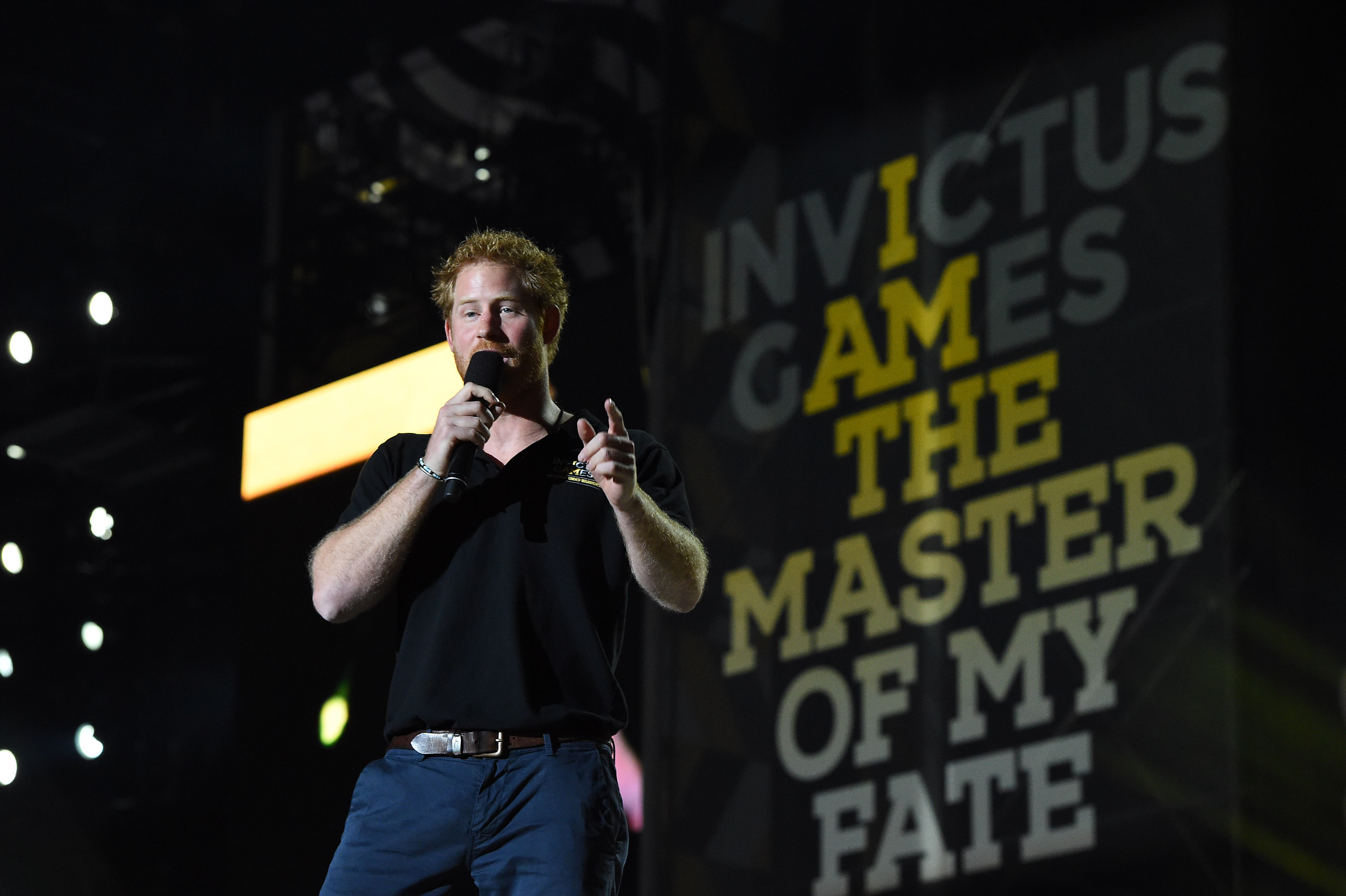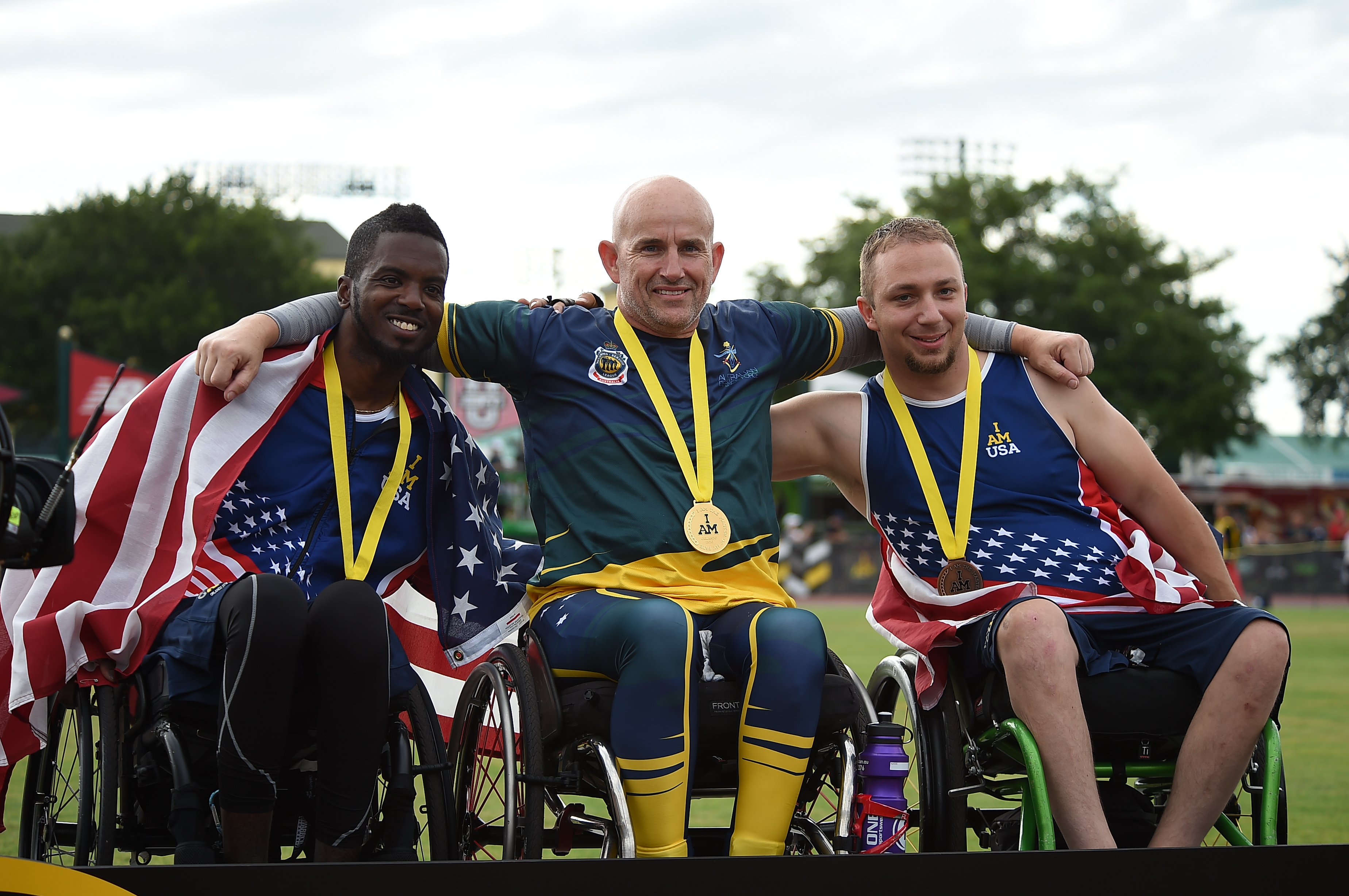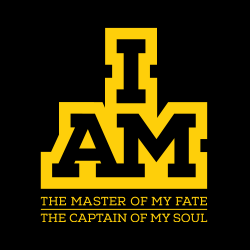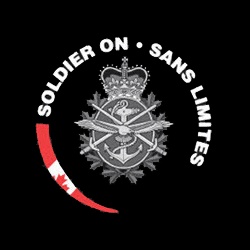Following a visit in 2013 to the US-based Warrior Games for wounded, ill and injured military personnel and veterans, Prince Harry was inspired to create an expanded international version. The inaugural Invictus Games took place in London in the fall of 2014 and attracted more than 400 competitors from 13 nations. The second Invictus Games took place in May 2016 in Orlando, Florida, and built on the excitement of the London Games with more than 500 competitors from 14 nations. The Invictus Games demonstrate soldiers’ and veterans’ indefatigable drive to overcome and the power of sport on their journey to recovery.
These Games shine a spotlight on the unconquerable character of servicemen and women and their families. They highlight the competitors’ “INVICTUS GAMES spirit.” These Games have been about seeing competitors sprinting for the finish line with everything they have and then turning around to clap the last person in. They have been about teammates choosing to cross the line together. These Games have been a display of the very best of the human spirit.
– Prince Harry, established the Invictus Games Foundation

Invictus Games competitors are the men and women who have come face-to-face with the reality of making a sacrifice for their country. They are the mothers, fathers, husbands and wives who have put their lives on the line and have suffered life-changing injuries. These people are the embodiment of everything the Invictus Games stands for. They have been tested and challenged, but they have not been overcome. They have proven they cannot be defeated. They have the willpower to persevere and conquer new heights. The Games shine a spotlight on the sacrifices these men and women made serving their country, and their indefatigable drive to overcome.
The Invictus Games is about much more than just sport – it captures hearts, challenges minds and changes lives.

Invictus, by William Ernest Henley
Out of the night that covers me,
Black as the pit from pole to pole,
I thank whatever gods may be
For my unconquerable soul.
In the fell clutch of circumstance
I have not winced nor cried aloud.
Under the bludgeonings of chance
My head is bloody, but unbowed.
Beyond this place of wrath and tears
Looms but the Horror of the shade,
And yet the menace of the years
Finds and shall find me unafraid.
It matters not how strait the gate,
How charged with punishments the scroll,
I am the master of my fate,
I am the captain of my soul.
‘I AM‘ is the motto for the Invictus Games, inspired by the final two lines of the poem Invictus, penned by English poet William Ernest Henley.
Invictus is Latin for unconquered.
The speaker in the poem proclaims his strength in the face of adversity. I AM reflects and defines the Games’ core purpose: to provide a platform for personal achievement, to compete, not just against each other, but against oneself and prove that “I AM the master of my fate, I AM the captain of my soul.”

About Adaptive Sport
Adaptive sport (or parasport) is competitive sport for individuals with disabilities. Adaptive sport closely resembles the sport played by able-bodied athletes, but with some modifications to the rules and equipment to better meet the needs of participants. In forming competitive teams, disabilities are generally classified by broad groups, such as physical, cognitive/developmental delays or both, allowing participants to compete against players with the same skill level.
Adaptive sport is often incorporated into the rehabilitation program of ill, wounded or injured persons. Adaptive sport competitions like the Invictus Games help currently serving members as well as veterans in overcoming their physical or mental health illness or injury. Through adaptive sport, these men and women:
- Develop a sense of belonging.
- Show increased self-esteem.
- Create an outlet for excess energy.
- Foster a sense of camaraderie with other wounded service members.
- Experience an improved quality of life.
For more information on the rehabilitative power of sport, visit Soldier On, a Canadian program that supports wounded, ill and injured serving members and veterans of the Canadian Armed Forces by offering access to adaptive sport programs and equipment.
Funding Parties




